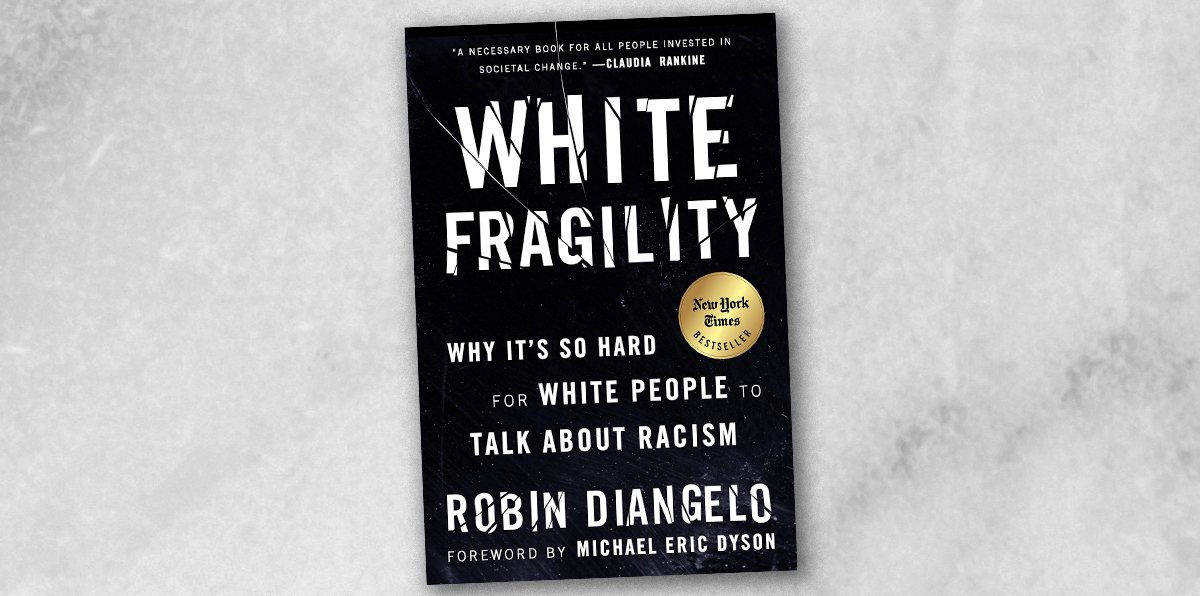Decker College’s DEI Book Club explores anti-racist texts

After George Floyd’s murder, Sharon Bryant wanted to support Binghamton University students, as well as her colleagues in Decker College of Nursing and Health Sciences.
The associate dean of Decker’s Division of Diversity, Equity and Inclusion (DEI) held a Holding Space last summer for students — a safe, virtual forum where they could discuss their feelings. This year, Bryant built on that, creating the DEI Book Club to help Decker College faculty and staff learn how to actively be anti-racist.
Bryant started the book club to bring faculty and staff together to discuss anti-racist texts published within the last few years. The first book she selected is Robin DiAngelo’s White Fragility: Why It’s So Hard for White People to Talk About Racism, chosen specifically to spark meaningful conversations across racial lines.
“I thought [White Fragility] was a good way for us to start, especially because, as a white woman, DiAngelo helps others to kind of interrogate and see their own race in a way that they may or may not have viewed in the past,” Bryant said. “And since she’s from that cultural group, she’s able to provide questions, provide scenarios, that resonate with individuals.”
Bryant created an anti-racist reading list for all Decker staff, making sure to tailor it to nursing faculty.
“I created an anti-racist reading list, identifying some texts that were written by nursing faculty members or nursing allies. We are addressing those issues that could readily be accessible as faculty were developing their coursework,” she said.
Bryant facilitates discussions on the books by using book-club discussion guides and allowing her fellow members to explore topics they are passionate about. She also established ground rules to ensure the book club is a safe space to discuss sensitive, important topics surrounding race and racism.
Through this book club, Bryant has learned other perspectives on racism.
“I always viewed my world through the lens of an African American woman; that has kind of framed my worldview. It was good to hear the other perspective, because I have not interrogated all of my white friends about this,” she said.
The book club currently has five members: Christine Podolak, Pam Stewart Fahs, Nicolle Nestler, Gerri Britton and Michele Summers.
Pam Stewart Fahs, a professor of nursing and the Decker Chair in Rural Nursing, joined the book club to expand her knowledge of anti-racism.
“I joined the group because one thing I love about academia is the support for lifelong learning and being able to discuss difficult subjects,” she said.
With regard to their first read, White Fragility, Fahs said: “I felt the book was informative, enlightening and thought-provoking. One of the areas where my understanding expanded is why racism should not be viewed as a dichotomy, but that it occurs on a spectrum and is so embedded in our culture that it can be difficult for ‘white’ people to understand or to see ourselves and the part we all play in perpetuating systematic racism.”
Christine Podolak, an instructor and associate director of experiential education in Decker’s Division of Public Health, recommended the book.
“I’ve learned that being white has afforded me with societal advantages not equally provided to all, especially for people of color,” she said. “Learning more about structural racism and how it is so deeply embedded in our society was an eye-opening realization.”
Podolak said being a part of the DEI Book Club allowed her to expand her knowledge of anti-racism and learn more about how she can be anti-racist.
“This experience also taught me that I still have a lot to learn,” she said. “I think the opportunity for self-reflection contributes to the idea of lifelong growth and is a crucial starting point. The more we bring light to these issues, the more they can be addressed.”
